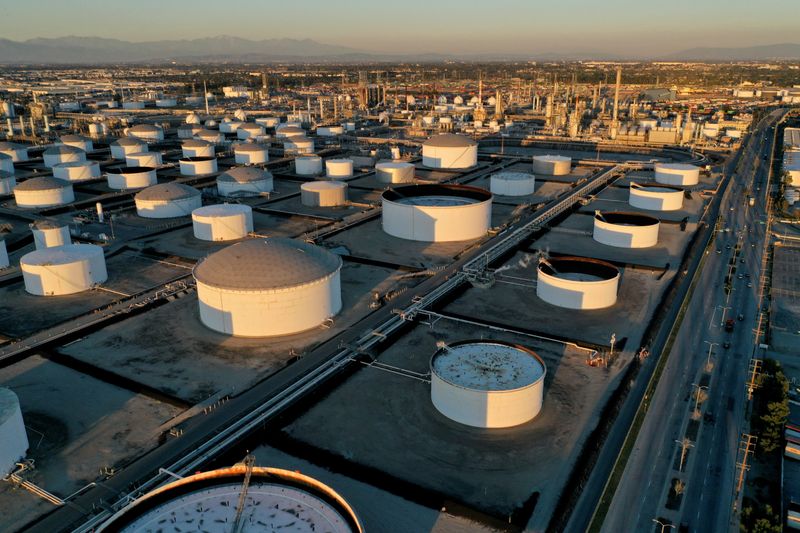By Nia Williams
(Reuters) -Oil prices climbed above $121 a barrel on Monday, hitting a two-month high as China eased COVID-19 restrictions and traders priced in expectations that the European Union will eventually reach an agreement to ban Russian oil imports.
Trading activity was muted due to a public holiday in the United States.
The Brent crude futures contract for July, which will expire on Tuesday, settled up $2.24, or 1.9%, at $121.67 a barrel. U.S. West Texas Intermediate (WTI) crude futures were up $1.99, or 1.7%, to $117.06 a barrel at 18.03 GMT, extending solid gains made last week.
"One reason being cited for this is the imminent lifting of coronavirus restrictions in Shanghai, which is sparking hopes that oil demand will pick up again in China," analysts at Commerzbank (ETR:CBKG) said in a note to clients.
Shanghai announced an end to its two-month-long COVID-19 lockdown, and will allow the vast majority of people in China's largest city to leave their homes and drive their cars from Wednesday.
Meanwhile, the EU is meeting on Monday and Tuesday to discuss a sixth package of sanctions against Russia for its invasion of Ukraine, which Moscow calls a "special military operation."
"Europe has been haggling about this for the better part of a month, but increasingly the market is pricing (additional sanctions) in as a risk," said Daniel Ghali, senior commodity strategist at TD Securities in Toronto.
EU countries failed to agree on a Russian oil import ban despite last-minute haggling before the summit got under way in Brussels. But leaders of the 27 EU countries will agree in principle to an oil embargo, a draft of their summit conclusions showed, while leaving the practical details and hard decisions until later.
Any further ban on Russian oil would tighten a crude market already strained for supply amid rising demand for gasoline, diesel and jet fuel ahead of the peak summer demand season in the United States and Europe.

Underscoring market tightness, the Organization of the Petroleum Exporting Countries and allies including Russia, a group dubbed OPEC+, are set to rebuff Western calls to speed up increases in output when they meet on Thursday.
They will stick to existing plans to raise their July output target by 432,000 barrels per day, six OPEC+ sources told Reuters.